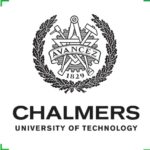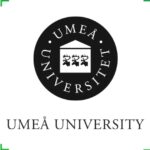Are you a PhD graduate eager to take the next leap in your academic journey? Look no further! University of Manchester, England invites online applications for prestigious Postdoctoral Fellowships across a wide range of research fields. Don’t miss out on this opportunity to propel your career forward.
Candidates interested in Postdoctoral Fellowships can check the details and may apply as soon as possible.
(01) Postdoctoral Fellowship Position
Postdoc summary/title:–Research Associate in Solvent Extraction for Isotopic Enrichment
With the nuclear industry experiencing a resurgence, The University of Manchester is committed to providing groundbreaking research to aid the advancing nuclear sector. We have the essential ingredients to make a full and lasting contribution: exceptional people and world-class facilities. The University of Manchester has the all-round capability to further research across the entire nuclear fuel cycles of both fusion and fission, from fuel manufacturing to power generation, treatment of used fuel and decommissioning. Our infrastructure and facilities are second to none in the UK. The Dalton Nuclear Institute (DNI) at the University of Manchester has established the most advanced academic nuclear research capability in the UK and is a leading centre for higher learning in nuclear science and engineering. Facilities to support these activities at the University of Manchester include the Nuclear Engineering, Science and Technology (NEST) facility and the Photon Science Institute (PSI). Along with the University of Manchester’s prolonged contribution to the nuclear sector, it has many links with industry, both in the UK and overseas, notably those with the UK Atomic Energy Authority (UKAEA) and the National Nuclear Laboratory (NNL). Members of the DNI have successfully collaborated with both academic and industrial partners in the UK and worldwide through various links, networks, and consortia to provide fundamental research for advanced and developing nuclear technologies.
Deadline : 26/07/2024
(02) Postdoctoral Fellowship Position
Postdoc summary/title:– Research Associate
Our group is recruiting a PDRA to join a multidisciplinary team that investigates the neuroepigenomic mechanisms of neurodevelopmental disorders in a maternal immune activation model. This multi-disciplinary project requires an experienced Research Associate with experience in epigenetics, neuroscience, tissue and cell analyses, bioinformatics, and animal testing including in vivo testing, a critical skill. This includes the ability and technical skills required to organise and analyse genome-wide methylation and gene expression data. The post also provides the opportunity to take on advisory and supervisory roles for postgraduate research and Masters students.
Deadline :26/07/2024
View more Postdoc Positions Click Here
(03) Postdoctoral Fellowship Position
Postdoc summary/title:– Research Associate in Cell and Mechano Biology
The successful applicant will be based jointly in the laboratories of Dr Joe Swift and Professor Qing-Jun Meng, who are members of the Manchester Cell-Matrix Centre. They will join a multi-disciplinary team spread across research groups in Manchester and Bristol investigating how cells build and repair collagen-rich tissues in health, ageing and disease. The project will involve manipulation and analysis of cell and animal models, using cell and mechano biology approaches in combination with gene editing and advanced imaging methods. The project will be supported by access to world-class Core Facilities and Experimental Officers within the Faculty of Biology, Medicine and Health at the University of Manchester.
This is a full-time appointment starting on 1st September 2024 and is funded for 16 months through a UKRI-BBSRC Strategic Longer/Larger (sLoLa) award.
The successful candidate will have a Ph.D. degree in biological sciences, bioengineering, biophysics, biomaterials or related subject. They will have proven knowledge and expertise in cell biology, and will ideally be familiar with concepts of mechano biology, circadian biology, cancer biology and ageing.
Duties will include design of experiments, data processing, training co-workers, presentation of work and preparation for publication.
Deadline : 06/08/2024
(04) Postdoctoral Fellowship Position
Postdoc summary/title:– Research Associate – Classifying and Understanding Remedies in Comparative Labour Law – CURE
CURE is a 5-year comparative project, originally funded by the ERC Consolidator Grant scheme and guaranteed by UKRI, based at the Department of Law, University of Manchester and led by Professor Aristea Koukiadaki. Its overall objectives are to set a new intellectual agenda and direction in comparative labour law by examining the concept and function of remedial rules and institutions. Reframing remedies as an intermediary link between different systems crucial in the production of our imaginaries of justice, CURE aims to provide a new reading of labour law systems on the basis of how they respond to violations, wrongs and injustices. The 5-year project adopts a multi-dimensional, comparative and multi-method research design to evaluate how the juridical concept of remedies has evolved across different dimensions of the employment relationship in a set of different national systems (i.e. France, Greece, Poland, Sweden and the UK). Data collection and analysis will include legal doctrinal and empirical (i.e. legal computational and qualitative) methods that are specifically designed to capture and interpret internal (i.e. legal) and external (i.e. political and economic) perspectives on the regulation of the remedial framework in comparative labour law.
We seek to establish an international team that will work in close collaboration to deliver highly original research in the areas of the project. The work for the project will start on the 1 November 2024 and the contract is for 30 months. The Research Associate will be responsible for the case of Poland and will be based in the Department of Law, in the School of Social Sciences. The work shall be carried out in line with the grant application granted originally by the ERC (as a Consolidator Grant) and guaranteed by UKRI.
Deadline : 05/08/2024
(05) Postdoctoral Fellowship Position
Postdoc summary/title:– Research Associate in Apparel Design Engineering
A Postdoctoral research associate position is available with Dr Kristina Brubacher in the Department of Materials for an ambitious and talented researcher in the interdisciplinary field of apparel development, technology and engineering in the Apparel Design Engineering (ADE) research group at the University of Manchester.
The ADE group is a globally recognised authority in 3D body scanning and pattern engineering, functional clothing development and apparel manufacturing, driving collaboration and innovation in the field. The group offers a dynamic research environment (currently 15 active postgraduate researchers and three staff members with additional associated members from other academic institutions). The successful candidate will make a full contribution to the group, and its members, whilst developing further their own academic career. The role aims to provide essential support during Dr Brubacher’s maternity leave, integrating the successful applicant as a core member of the ADE group, collaborating with colleagues Dr Hayes and Dr Gill.
Responsibilities will span diverse research tasks, including data collection and analysis, supporting grant applications, and assisting in PhD supervision. Additionally, the role involves writing academic papers and maintaining valuable partnerships with external academics and industry stakeholders.
Deadline : 22/07/2024
(06) Postdoctoral Fellowship Position
Postdoc summary/title:– Research Associate in Multiscale Imaging
The extracellular matrix is a complex network of fibrillar proteins, glycoproteins and secreted factors that form complex assemblies essential for tissue structure and function. Most components of the extracellular matrix are large, insoluble multicomponent complexes which are extensively post-translationally modified. Within the Manchester Cell Matrix Centre, we have expertise in imaging all hierarchies of matrix, from high resolution structures of individual matrix proteins to tissue-level imaging. One of our research themes is to now integrate these imaging approaches to visualise matrix across scales. Therefore, the aim of this project is to integrate the imaging from the molecular to the tissue scale. Working with research groups across the Platform and with Facilities (Electron Microscopy, Bioimaging, eBiC and National X-ray Computed Tomography), you will develop 3D imaging approaches (eg cryo-electron tomography of adhesion complexes and correlated microCT and SBF-SEM of tissues) which will be applied to matrix samples, and to integrate these data from different length scales.
Located at The University of Manchester, the Centre is one of eight Discovery Research Platforms recently awarded by the Wellcome Trust. The Discovery Research Platform for Cell-Matrix Biology will address a range of practical, technological, and methodological barriers to understanding how changes in the extracellular matrix leads to tissue failure. We are seeking driven and ambitious individuals to play a pivotal role in overcoming these barriers. Successful candidates will contribute to our bold vision to reprogramme extracellular matrix, which has the potential to lead to innovative new diagnostic tools and treatments for diseases such as cancer and fibrosis. The platform will embrace a Team Science approach and provide an exciting opportunity to work with groups from diverse research areas and collaborate across disciplines.
Deadline : 19/07/2024
Connect with Us for Latest Job updates
(07) Postdoctoral Fellowship Position
Postdoc summary/title:– Research Associate in Materials Chemistry
Applications are invited for a Research Associate Position in Materials Chemistry within a collaborative EPSRC-funded project titled “Biomineral-inspired mechanically tough perovskite solar cells with enhanced stability”. The Research Associate will prepare and study new state-of-the-art hybrid perovskites and investigate the roles of morphology and composition on perovskite solar cell performance and stability. They will prepare and investigate new nanogel additives that enhance the mechanical properties and stability of the solar cells. This project is part of a consortium and will involve collaboration with Imperial College London and Oxford University.
You should have a PhD or equivalent in chemistry or Materials chemistry, a background in hybrid perovskite chemistry, experience with solar cell construction and measurements, experience with nanogel/microgel and/or polymer synthesis as well as a strong publication record and the ability to write research papers. The ability to work within a mutli-disciplinary research group will also be important. The position will be supervised by Prof. Brian Saunders (Department of Materials).
Deadline : 22/07/2024
(08) Postdoctoral Fellowship Position
Postdoc summary/title:– Research Associate – Classifying and Understanding Remedies in Comparative Labour Law – CURE
Applications are sought for a Research Associate on the CURE project, focusing on the case of Sweden.
CURE is a 5-year comparative project, originally funded by the ERC Consolidator Grant scheme and guaranteed by UKRI, based at the Department of Law, University of Manchester and led by Professor Aristea Koukiadaki. Its overall objectives are to set a new intellectual agenda and direction in comparative labour law by examining the concept and function of remedial rules and institutions. Reframing remedies as an intermediary link between different systems crucial in the production of our imaginaries of justice, CURE aims to provide a new reading of labour law systems on the basis of how they respond to violations, wrongs and injustices. The 5-year project adopts a multi-dimensional, comparative and multi-method research design to evaluate how the juridical concept of remedies has evolved across different dimensions of the employment relationship in a set of different national systems (i.e. France, Greece, Poland, Sweden and the UK). Data collection and analysis will include legal doctrinal and empirical (i.e. legal computational and qualitative) methods that are specifically designed to capture and interpret internal (i.e. legal) and external (i.e. political and economic) perspectives on the regulation of the remedial framework in comparative labour law.
We seek to establish an international team that will work in close collaboration to deliver highly original research in the areas of the project. The work for the project will start on the 1 November 2024 and the contract is for 30 months. The Research Associate will be responsible for the case of Sweden and will be based in the Department of Law, in the School of Social Sciences. The work shall be carried out in line with the grant application granted originally by the ERC (as a Consolidator Grant) and guaranteed by UKRI.
Deadline : 05/08/2024
(09) Postdoctoral Fellowship Position
Postdoc summary/title:– Research Associate – Classifying and Understanding Remedies in Comparative Labour Law – CURE
CURE is a 5-year comparative project, originally funded by the ERC Consolidator Grant scheme and guaranteed by UKRI, based at the Department of Law, University of Manchester and led by Professor Aristea Koukiadaki. Its overall objectives are to set a new intellectual agenda and direction in comparative labour law by examining the concept and function of remedial rules and institutions. Reframing remedies as an intermediary link between different systems crucial in the production of our imaginaries of justice, CURE aims to provide a new reading of labour law systems on the basis of how they respond to violations, wrongs and injustices. The 5-year project adopts a multi-dimensional, comparative and multi-method research design to evaluate how the juridical concept of remedies has evolved across different dimensions of the employment relationship in a set of different national systems (i.e. France, Greece, Poland, Sweden and the UK). Data collection and analysis will include legal doctrinal and empirical (i.e. legal computational and qualitative) methods that are specifically designed to capture and interpret internal (i.e. legal) and external (i.e. political and economic) perspectives on the regulation of the remedial framework in comparative labour law.
We seek to establish an international team that will work in close collaboration to deliver highly original research in the areas of the project. The work for the project will start on the 1 November 2024 and the contract is for 30 months. The Research Associate will be responsible for the case of France and will be based in the Department of Law, in the School of Social Sciences. The work shall be carried out in line with the grant application granted originally by the ERC (as a Consolidator Grant) and guaranteed by UKRI.
Deadline : 05/08/2024
(10) Postdoctoral Fellowship Position
Postdoc summary/title:– Research Associate – Classifying and Understanding Remedies in Comparative Labour Law – CURE
Applications are sought for a Research Associate on the CURE project, focusing on the case of Greece.
CURE is a 5-year comparative project, originally funded by the ERC Consolidator Grant scheme and guaranteed by UKRI, based at the Department of Law, University of Manchester and led by Professor Aristea Koukiadaki. Its overall objectives are to set a new intellectual agenda and direction in comparative labour law by examining the concept and function of remedial rules and institutions. Reframing remedies as an intermediary link between different systems crucial in the production of our imaginaries of justice, CURE aims to provide a new reading of labour law systems on the basis of how they respond to violations, wrongs and injustices. The 5-year project adopts a multi-dimensional, comparative and multi-method research design to evaluate how the juridical concept of remedies has evolved across different dimensions of the employment relationship in a set of different national systems (i.e. France, Greece, Poland, Sweden and the UK). Data collection and analysis will include legal doctrinal and empirical (i.e. legal computational and qualitative) methods that are specifically designed to capture and interpret internal (i.e. legal) and external (i.e. political and economic) perspectives on the regulation of the remedial framework in comparative labour law.
We seek to establish an international team that will work in close collaboration to deliver highly original research in the areas of the project. The work for the project will start on the 1 November 2024 and the contract is for 30 months. The Research Associate will be responsible for the case of Greece and will be based in the Department of Law, in the School of Social Sciences. The work shall be carried out in line with the grant application granted originally by the ERC (as a Consolidator Grant) and guaranteed by UKRI.
Deadline : 05/08/2024
View Fully Funded PhD Positions Click Here
About The University of Manchester, England- Official Website
The University of Manchester is a public research university in Manchester, England, formed in 2004 by the merger of the University of Manchester Institute of Science and Technology and the Victoria University of Manchester. The University of Manchester is a red brick university, a product of the civic university movement of the late 19th century.
The main campus is south of Manchester city centre on Oxford Road. The university owns and operates major cultural assets such as the Manchester Museum, Whitworth Art Gallery, John Rylands Library and Jodrell Bank Observatory—a UNESCO World Heritage Site. In 2019/20, the university had 40,485 students and 10,400 staff, making it the 3rd largest university in the UK (out of 169 including the Open University), and the largest single-site university. The university had a consolidated income of £1.1 billion in 2019–20, of which £264.7 million was from research grants and contracts (6th place nationally behind Oxford, UCL, Cambridge, Imperial and Edinburgh). It has the fifth-largest endowment of any university in the UK, after the universities of Cambridge, Oxford, Edinburgh and King’s College London. It is a member of the worldwide Universities Research Association, the Russell Group of British research universities and the N8 Group.
The University of Manchester has 25 Nobel laureates among its past and present students and staff, the fourth-highest number of any single university in the United Kingdom.
Disclaimer: We try to ensure that the information we post on PhdNest.com is accurate. However, despite our best efforts, some of the content may contain errors. You can trust us, but please conduct your own checks too.
Related Posts
- 21 Postdoctoral Fellowship at Chalmers University of Technology, Gothenburg, Sweden
- 14 Postdoctoral Fellowship at Lund University, Scania, Sweden
- 10 Postdoctoral Fellowship at Umea University, Sweden
- 07 Postdoctoral Fellowship at Stockholm University, Sweden
- 21 Postdoctoral Fellowship at Uppsala University, Sweden
- 24 Postdoctoral Fellowship at University of Manchester, England
- 06 Postdoctoral Fellowship at European Molecular Biology Laboratory (EMBL), Germany
- 15 Postdoctoral Fellowship at University of Amsterdam, Netherlands
- 13 Postdoctoral Fellowship at University of Nottingham, England
- 24 Postdoctoral Fellowship at Technical University of Munich, Germany
- 05 Postdoctoral Fellowship at University of Queensland, Australia
- 24 Postdoctoral Fellowship at Oak Ridge National Laboratory, United States













